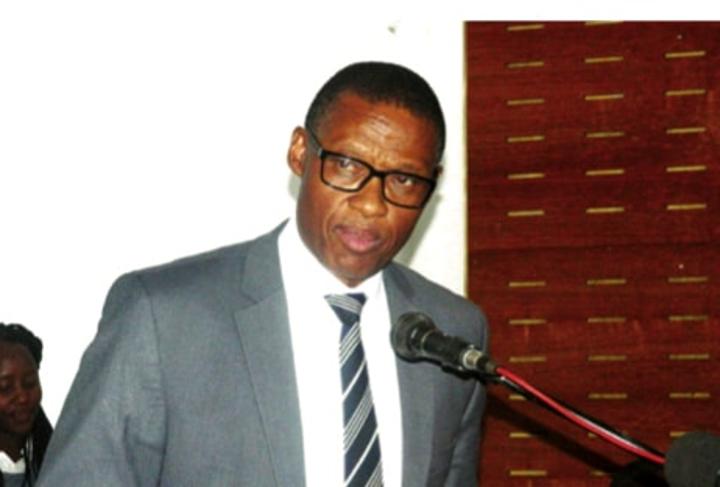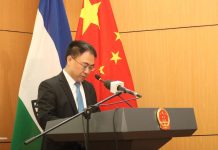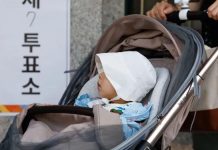Africa-Press – Lesotho. Massive corruption in the placement of teachers between 2015 and 2016 could have cost government millions in payments to ghost workers and unwanted staff, a Public Accounts Committee (PAC) report has revealed.
Although the report did not state or estimate how much could have been siphoned from government coffers, the report shows corruption in the employment of teachers had become a lucrative venture that prospective teachers paid as much as M7,000 to secure elusive jobs.
In a withering attack on Ministry of Education and Training management at the time, the report has recommended corruption fighting agencies, including the Directorate on Corruption and Economic Offences (DCEO), to step in to investigate potential breach of anti-corruption laws.
Ministry officials had, however, shifted blame on privately-owned school authorities for triggering the kerfuffle, suggesting a probe the ministry had commissioned after unsuccessful applicants had complained to them had exposed corruption in employment of teachers.
The scam exploded into the open after unhappy school authorities blew the whistle on the scandal before the PAC, alleging some unwanted teachers had continued drawing wages long after being cashiered from classrooms.
The PAC wants action taken against then education minister Dr Mahali Phamotse, the Ministry’s Chief Legal Officer, Mr Mofoka and Chief Education Officer Teaching Services, Maselloane Sehlabi.
The Educational Secretaries of Church Schools and principals of some Government Schools complained to the PAC about the placement system of teachers in 2015 and 2016 in their schools, accusing the ministry of forcing teachers on them.
The complainants alleged Dr Phamotse breached section 25 and 42 of the Education Act 2010 which prescribes use of the bottom-up (not top-down) approach during employment of teachers.
PAC learned that Dr Phamotse disregarded laid down procedures by not involving principals and owners of schools before placing teachers at their institutions, thus making the deployments unlawful.
The complainants further contended the placements had been politically motivated and most of the teachers placed in their schools were not the type of teachers they needed.
Their main concern was that Governing Schools Boards (GSB) had been sidelined and there was no transparency in the placement of the teachers. Phamotse, told the PAC she took the unprecedented move after learning of the enormous shortage of teachers in some schools although the posts had been allocated funds.
PAC, in its report, noted that Phamotse also alleged receiving complaints about malpractice in the employment of teachers and some sources had cited nepotism, bribery, religious affiliation and on that account she had engaged the Teachers Service Commission (TSC) and Teaching Service Department (TSD) with a view to finding a possible solution to the “crisis”.
“It was then decided to embark on a study relating to the alleged crisis that would inform the actions to be taken to redress the situation.
“Educational Secretaries of church schools were informed but the ministry and those secretaries did not agree on the composition of the team to undertake the study.
“Phamotse indicated that as the ministry, they felt it would not be right to include the educational secretaries and other schools’ representatives as they were also implicated in the corrupt employment practices.
“The ministry unilaterally conducted the study by interviewing those who had registered themselves as teachers with TSD but had not been offered employment,” reads PAC’s report.
The PAC report further noted that Phamotse revealed the study confirmed some of the allegations including nepotism, lack of transparency in the interviews, political and religious affiliations and in some schools, some teachers had paid bribes to school boards and principals.
It further noted that Phamotse indicated that she was advised by ministry officers, particularly Mr Mofoka and Mrs Sehlabi to seek cabinet approval to implement the alleged “pilot placement”, which was approved leading to creation of a new database of registered teachers and their placement.
The report further reads that education secretaries who were interviewed indicated that their disagreement with the ministry centred around composition of the team to conduct the study and the way it was conducted.
“The secretaries argued that the study was limited to only those people who had not been offered employment (complainants) and excluded those who were employed, schools’ proprietors and school boards.
“Again, the original agreed composition of the team to conduct the study was to include the police, DCEO, and representatives from schools which Phamotse negated,” the report said.
The report also shows that the disagreement between educational secretaries of the schools and the ministry forced the ministry to implement the “pilot” placement in Government schools and community schools.
“Another surprising thing in the placement system is that the ministry’s principal Secretary Thabiso Lebese informed the committee that he had been informed by TSD officers, including Mrs Sehlabi, that some of the lists of the placed teachers came from the minister’s office of which Phamotse did not comment on,” reads the PAC report.
The PAC also recommended the ministry stops dumping unwanted teachers at schools and to investigate the illegal placement of teachers in schools and report to Parliament how much the Government lost under this placement programme where some teachers were paid without working.
The revelation comes on the heels of a World Bank report on Education Public Expenditure which notes that Lesotho has fallen behind other nations in meeting international standards in providing education despite committing more funds to the sector.
“Lesotho is also not on track to achieve the two education-related MDGs (Millennium Development Goals), with both primary enrollment (82 percent) and primary completion (65 percent) rates lagging far behind the goal of 100 percent by the end 2015.
” The report shows that high government spending in the education sector reflects the Government’s priority of providing free primary education.
“Lesotho spent about 10 percent of its gross domestic product (GDP) for the education sector in fiscal year (FY) 2015/16 — more than other countries at the same level of income per capita.
“Indeed, primary education receives the largest share of spending in accordance with the country’s provision of free primary education. However, when bursary spending through the Ministry of Development and Planning (MoDP) is included, tertiary spending is also high.
“By contrast, spending on Early Childhood Care and Development (ECCD) is very low, as is secondary education spending,” reads the report.
It further notes that since the introduction of free primary education in the year 2000, the number of teachers has increased by 50 percent, contributing to lower student-teacher ratios notwithstanding the great geographical disparities.
“With almost 15,900 teachers, Lesotho has achieved a student-teacher ratio of 30 for the country as a whole, with a ratio of 33 in primary schools and 25 in secondary schools — although with great variation across districts. However, this is not particularly high in an international context.”
For More News And Analysis About Lesotho Follow Africa-Press






